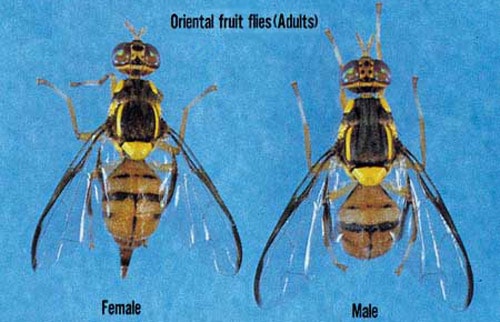More than 160 flies found in Florida
By Diego Flammini, Farms.com
In an attempt to combat an infestation of Oriental fruit flies that’s considered the worst in Florida’s history, the state is planning to spray the 97 square-mile quarantine zone that occupies the Miami-Dade County’s Redland area.

A product called Spinosad will be sprayed to manage the pests. It is a broad-spectrum insecticide that’s extracted from Saccharopolyspora spinosa, a natural soil microbe. The insecticide is approved for organic use and received a “Green Chemistry” award by the US Environmental Protection Agency. It’s a common ingredient among garden products and veterinary medications for pets.
“I am committed to using every weapon in the arsenal to protect agriculture in Miami-Dade County, as well as the entire state, and the aerial spraying of this product that is approved for use by organic growers is one more measure we can take to eradicate the Oriental fruit fly,” stated Commissioner of Agriculture Adam H. Putnam in a press release.
The Oriental fruit fly was first spotted in Miami-Dade County on August 26th and since then a total of about 160 have been found. The infestation is the worst in Florida’s history and as a result, Commissioner Putnam declared an agricultural state of emergency on September 15th.
Adult females lay eggs just under the skin of the fruit. If a fruit tree is affected by the Oriental fruit fly, symptoms will include small and discolored patches on the fruit’s skin, and the rotting fruit will fall from the tree prematurely.
Join the conversation and tell us if you’ve ever managed the Oriental fruit fly. Is it something you’ll look for going forward?